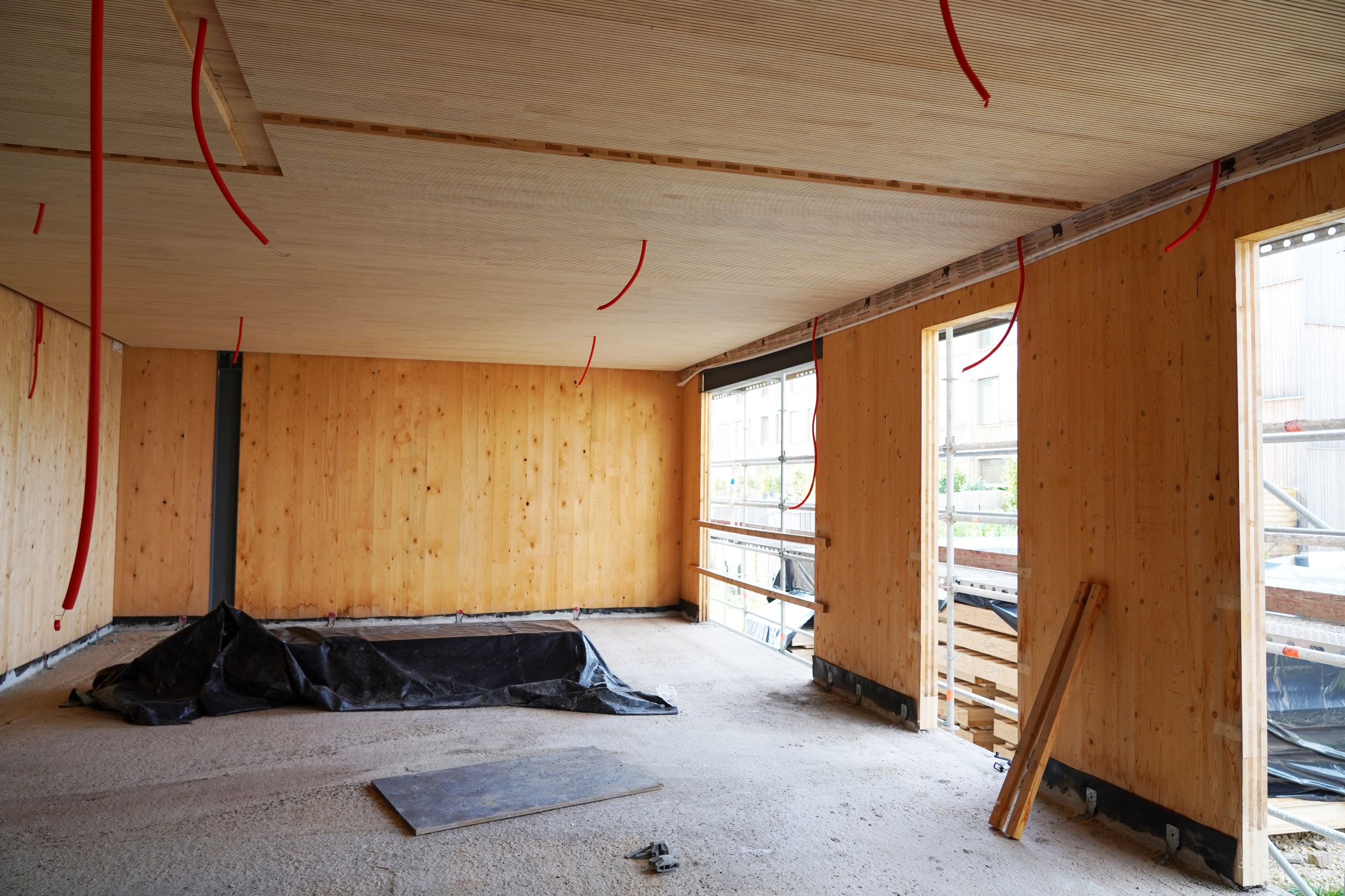Why build an energy-efficient home?
Building with energy efficiency in mind not only saves energy costs, but also increases the value of your property. There is also the added benefit of taking climate action and improving my own living comfort.
Reducing my energy requirements
Constructing green and energy-efficient homes not only benefits the environment. Thanks to better insulation standards and technical installations that promote renewable energies, I can reduce my own energy requirements and hence, my energy bill.
Improving my home’s indoor climate
Building a new, greener home means choosing a better quality of life and improved comfort: new ventilation and heating systems are installed according to the latest technical standards. The well-insulated walls of a new-build home allow me to stay warm and cosy in winter. Thanks to an efficient ventilation, I can enjoy improved air quality and thermal comfort.
In addition, modern methods of construction and environmentally friendly, sustainable materials emit fewer harmful substances, which is beneficial to my health.
There is little to no maintenance required during the first ten to fifteen years after construction - therefore, I additionally save on maintenance costs.
Maintaining the value of my property
A sustainable building consumes less energy. This ensures lower energy consumption in the future, which increases its property value. When selling the property, you can profit from this increased value. Building sustainably is an investment in my future.
Getting the most out of resources and constructing sustainably
By choosing sustainable construction methods, I conserve resources. I should already think about how I can reduce embodied energy in my home during the planning phase and when choosing materials. Embodied energy is the amount of energy required during the life cycle of the materials in my home: production, extraction, processing, manufacturing, transport, installation, use, maintenance and recycling. As a result, less energy is consumed during the construction of my home.
I should also pay special attention to reducing unnecessary waste and to make the most out of my building materials.
The LENOZ certificate
To promote sustainable building, the government has created the LENOZ ("Lëtzebuerger Nohaltegkeets-Zertifikat fir Wunngebaier") certificate, a global assessment approach based on three pillars of sustainability:
- environmental preservation;
- economic efficiency;
- fair social organisation.
This voluntary certification aims to increase awareness of the sustainability of housing and the transparency in the property market.
It allows, among other things, to assess the building beyond aspects of energy efficiency and focuses in particular on:
- environmental assessment of building materials;
- health, indoor and outdoor air quality, comfort;
- choice of location.
The LENOZ certificate is partly based on the data contained in the building's energy performance certificate. The energy performance certificate (also known as “Energiepass”) provides information on the building’s calculated energy requirements and on CO2 emissions. It also outlines the energy performance class, ranging from A (the best class) to I (the worst class). The classification is based on the index of:
- primary energy requirements;
- heating energy requirements;
- CO2 emissions.

Make my simulation online
- I fill in the information about my project and I immediately get a simulation of the subsidies I can receive to build my home.
- I access the forms to apply for the corresponding grants.
At any time I can get in touch with a Klima-Agence advisor to be supported in my simulation.
Make an appointment with a Klima-Agence advisor

